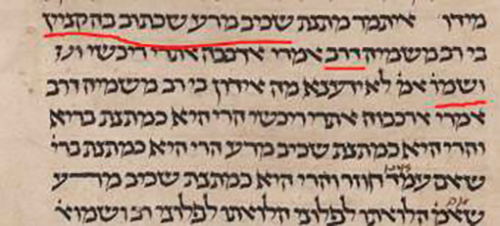There are events and moments that force us to reconsider our fundamental assumptions and relationships. This is true of the tsunami of antisemitism that has surged in America and worldwide.
For decades, the Jewish community has experienced life in the United States virtually free of antisemitism. This was completely in character for a country that looked to create a “great society” that cared for its most vulnerable citizens and was fiercely committed to the protection of the rights of all people to live free from discrimination. It led the great rabbis of America to describe this country as a malchut shel chesed, a kingdom of kindness.
In this context, much of our Jewish government advocacy work focused on getting our fair share of that kindness. As taxpayers, we sought government support for our secular education, as a faith community we pursued government partnership in our social programs, and as observant Jews we needed protection of our religious liberty.
That dynamic has shifted. The schools and the streets of the malchut shel chesed do not feel exceptionally kind right now. While our elected officials have been supportive of Israel and have unequivocally condemned antisemitism, they have thus far been unsuccessful in curbing the antisemitic bile that is exploding from a coalition of the vicious and the confused. The zealous protection of the right of free speech has enabled an environment in universities, schools and streets, where the hateful are free to intimidate, demonize and threaten without fear of consequence. Jewish students in the universities have discovered that higher education can be taught without basic values. All of us have been shocked to witness previously unimaginable expressions of Jew-hatred in the streets of the United States. In meeting after meeting in which we have joined with other Jewish organizational leaders to engage with government officials in pursuit of solutions, genuine tears have been shed by officials who recognize the problem but have not yet found the solution. We hope and pray that the new administration will bring new approaches to address this problem decisively, but there is much to do as there are areas in the land of liberty where things are spiraling out of control, parts of American society where there is neither greatness nor goodness.
This change compels us to shift our own focus from pursuing our fair share of the country’s kindness to ensuring that it endures as a kingdom of kindness. Instead of considering only what our country can do for us, we need to use our presence, our values, and our voice to uplift our country and help it find its way.
In our parsha, we read of Avraham approaching the local authorities for his fair share as a resident and citizen, seeking a simple burial plot for his beloved wife Sarah. He was lobbying the government for something that he needed, but they did not respond to him as to someone making a pitch. Avraham’s life was defined by giving and generosity to others. They therefore addressed him as Nesi Elokim, a Godly prince, a person whose presence in their midst uplifted them and brought out the divine image within themselves. Avraham elevated the society around him in a way that ultimately encouraged and elicited their kindness towards him as well.
That is where we need to be today. Our country needs more from us than we need from it. In our efforts for the foreseeable future, we must go beyond protecting ourselves or getting our fair share. We will do our part to uplift our country, to ensure the continuity of America as a truly great society and a kingdom of kindness.
Rabbi Moshe Hauer is executive vice president of the Orthodox Union (OU), the nation’s largest Orthodox Jewish umbrella organization.









